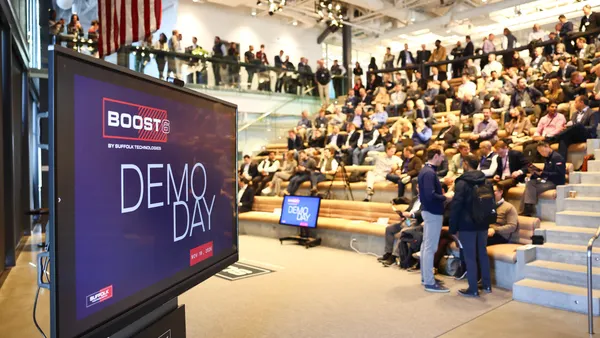Dive Brief:
- Manhattan-based Glenwood Management will pay nearly $1 million and retrofit several New York City apartment buildings as part of its settlement of a Fair Housing Act lawsuit brought by federal prosecutors who alleged lack of accessibility at some of the company’s properties, according to The Real Deal reported.
- U.S. Attorney Preet Bharara said one building "was designed and constructed with scores of inaccessible features," such as out-of-reach thresholds and mailboxes, violating the FHA.
- Glenwood has agreed to retrofit three of its buildings to make them more accessible to those with disabilities and said it will inspect six of its other Manhattan properties and make retrofits where they are needed. In addition, the company said it will set guidelines to ensure that future projects are accessible.
Dive Insight:
"This settlement shows our enforcement efforts have motivated major developers like Glenwood to embrace their obligations under the law by making retrofits in thousands of apartments, compensating aggrieved parties and establishing procedures to ensure accessibility at ongoing and future development projects," Bharara said in a statement.
The Glenwood settlement includes up to $900,000 in compensation and a civil fine of $50,000. Bharara said the Glenwood case is the 10th case of this kind that his office has initiated against New York City landlords.
"Glenwood has always tried to adapt apartments for disabled residents and looks forward to working with the Civil Division to enhance the accessibility of the nine covered buildings," the company said in a statement.
The FHA requires that most new multifamily housing be designed as accessible and buildings with four or more units with an elevator built for first occupancy after March 13, 1991, must comply with the following design and construction requirements:
- Accessible entrance on an accessible route
- Accessible public and common-use areas
- Usable doors
- Accessible route into and through the dwelling unit
- Accessible light switches, electrical outlets, thermostats and environmental controls
- Reinforced walls in bathrooms
- Usable kitchens and bathrooms
In addition, the FHA requires housing providers to make reasonable accommodations for people with disabilities or to allow people with disabilities to make reasonable modifications to their units.












